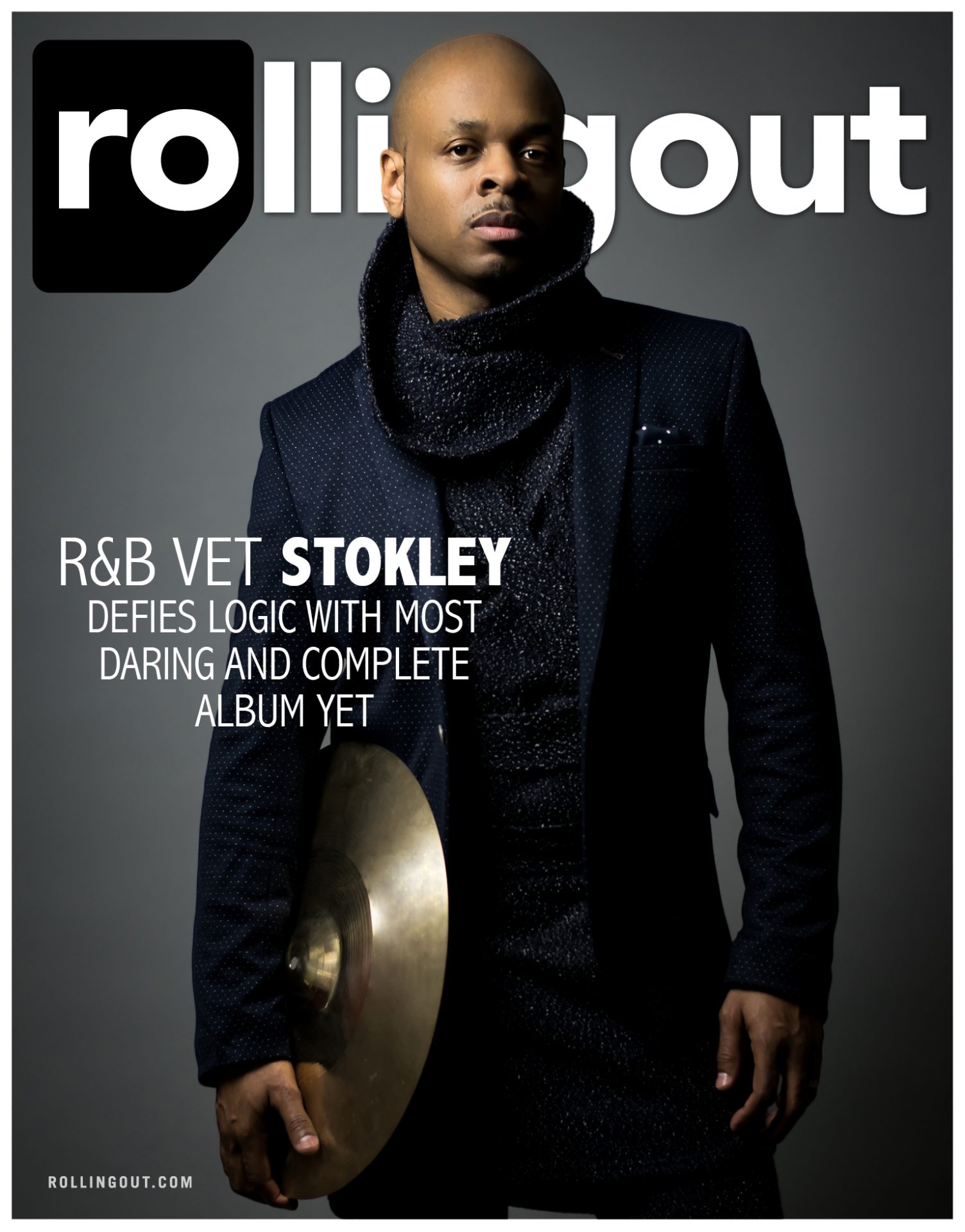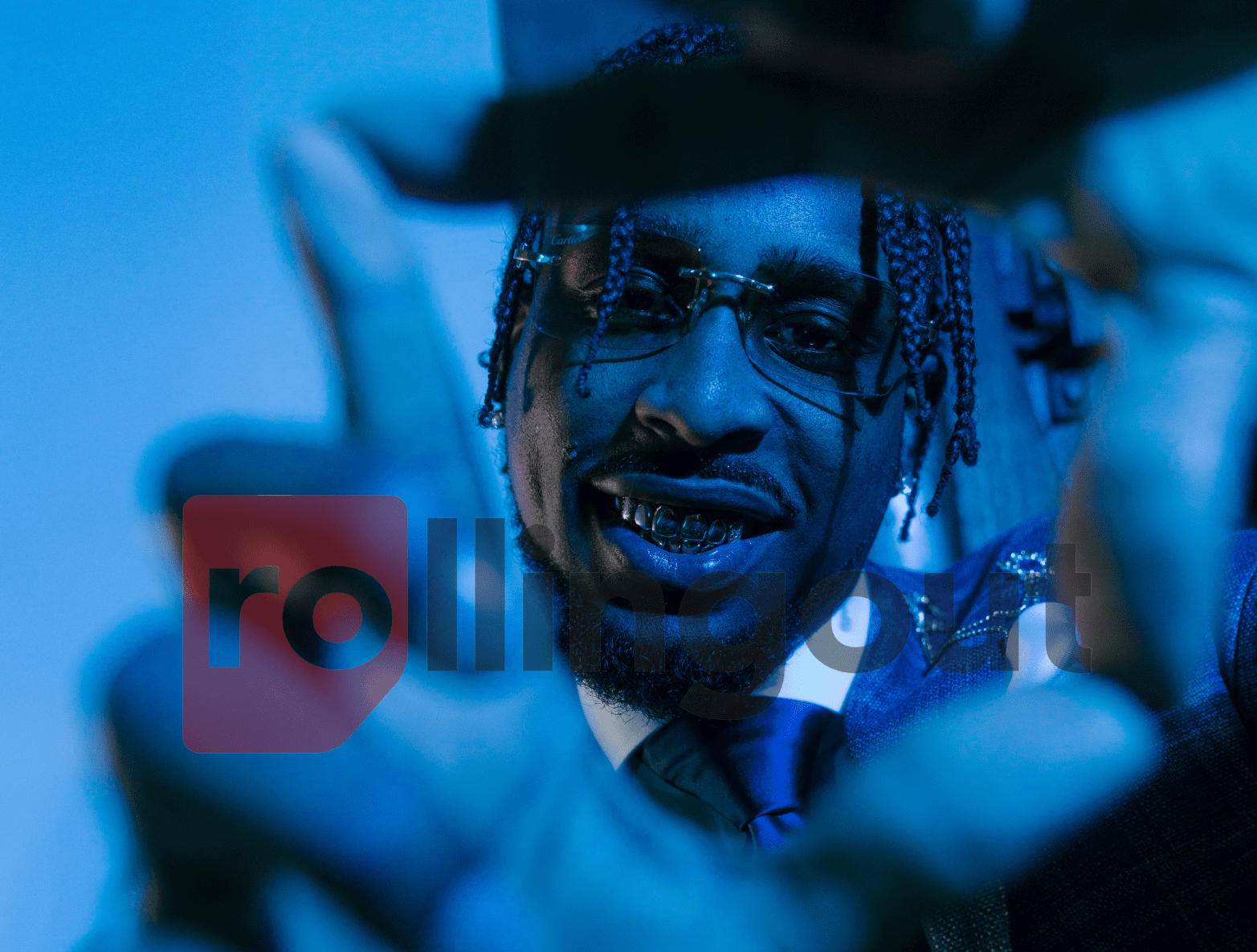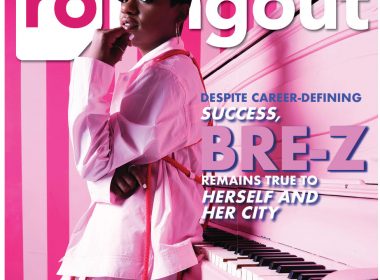On a drizzly Monday afternoon in Atlanta, Killer Mike arrives at rolling out’s headquarters decked out in an outfit that immediately summons memories of noted Black intellectuals of the Civil Rights Movement. He’s dressed in all-black and sporting classic Ray-Ban glasses. The effect is a clear understanding that this is a Black man on a mission. But Killer Mike’s true identity goes beyond making fashion statements. He is a man of action. He is a man who has been working diligently for years to be a voice for change.
Sitting down to begin this interview, he’s excited to highlight the work of other change agents who came before him, most notably Atlanta’s first Black mayor, Maynard Jackson. For many in Atlanta, Jackson is credited with uniting Atlantans during a time of much racial turmoil in the late 1970s and more importantly, providing the blueprint for the once burgeoning city to become the major business hub it is today.
“Maynard didn’t take s—,” Killer Mike says, adding that Jackson ignored the hateful voices of Southern bigots and ensured that minority-owned businesses were given access to city contracts and agreements that ensured success beyond those in the majority who belonged to the “Good Old Boys Club” and typically took advantage of such prospects. Jackson saw this as an opportunity to level the playing for all citizens of the city. It was a practice that created Black millionaires and expanded the city’s Black middle class. In turn, Atlanta surpassed other Southern cities in terms of business success and Jackson’s approach set the stage for an entertainment industry that thrives today.
In L.A. Reid’s new book, Sing to Me, the music executive describes why Atlanta became the home for LaFace Records, a label that sparked the city’s music scene. “Atlanta was not on the pop music map. It was a large Southern city, but it didn’t feel like the Old South. It was the birthplace of the Rev. Martin Luther King Jr., and the city where Civil Rights leaders Andrew Young and Maynard Jackson had been elected mayor. Atlanta had this robust history and an upwardly mobile Black community. It felt like a city full of dreamers, a place where things could happen,” Reid wrote.

The dream of a city can become the hope for a nation. Killer Mike believes that transformation within the political realm in America can best occur in this day and age if Bernie Sanders becomes the next president. As election season intensifies, Killer Mike continues to travel the nation to stump for Sanders.
“I’m from Atlanta and I’ve been trained in Dr. Martin Luther King’s philosophy,” Killer Mike says. “I lay down Dr. King’s social justice platform and I look at every politician’s platform and lay it out on paper. Whatever politician hits the most marks, that’s the politician I vote for and Sanders is that guy. We’ve been taught to revere these civil rights leaders, [however], oftentimes, we have so much reverence for the human being that we ignore the philosophy and the message. I don’t see how there’s one civil rights leader who marched with Dr. King or came after that who would support anybody but Bernie Sanders. If you truly believe in what Dr. King said, [Sanders] would be the only choice.”
With help from Killer Mike, Sanders has gained momentum among Black and millennial voters. But Sanders still faces an uphill battle against Hillary Clinton, who remains the front-runner. The Clintons have long had a patchy relationship with the Black community. Bill Clinton was jokingly viewed by some as the “first Black president” during the 1990s. But his 1994 Crime Bill played a key role in the mass incarceration of Blacks over the past two decades. Also, Clinton’s Welfare Reform Act doubled poverty rates after it was passed in 1996. Some believe Hillary shouldn’t be judged for Bill’s failed policies, but it’s hard to separate their political ideologies.
“Black people are deaf, dumb, and blind, because Americans are deaf, dumb, and blind,” Killer Mike says. “We’re just the ones that people can point at and say, ‘Black people are silly for trusting the Clintons.’ But there is no difference between them and people who are trusting a member of the Bush family. It’s an oligarchy. It’s two political families just taking turns running your country. And beyond the president that’s running your country, look at the people around your presidents. Why is Donald Rumsfeld around more than one president? Why is Karl Rove around more than one president? Why is Henry Kissinger around so many American presidents? You need to start asking yourself these questions. Who really controls the Democratic and Republican parties? If you have an elected official that gets out of office and immediately takes a corporate job and starts taking millions of dollars in speeches, that’s a bribe. It’s a deferred bribe, but a bribe is a bribe.”

Killer Mike may one day have aspirations to make a serious run at a political office (he flirted with the idea of being a write-in candidate in the Georgia state legislature in 2015). But for now, he’s not willing to compromise himself to play the political game. He’s an avid weed smoker, who enjoys a good night at the strip club. On the flip side, he’s a husband and father to four kids. To understand the complexities of Killer Mike, you must first venture into the Adamsville neighborhood that raised him. It’s a predominately Black community located in Southwest Atlanta.
“Adamsville and the Martin Luther King Drive main strip was pretty wild,” Killer Mike recalls of the area where he grew up. “Drugs hit the main strips hard and in other Black communities all around the nation. But the communities that made up Adamsville were still middle-class and working-class Black communities. I saw Black store owners and Black-owned gas stations. The backyards aligned on my street had farms, gardens, and farm animals. It was what a Southern suburb would be even though it was in the city. Drugs were running rampant on the main strip, but it was still a pretty diverse neighborhood in terms of a Black economy. We were working class, but I grew up in the front streets of Collier Heights. Collier Heights is now a nationally historic neighborhood. It was a neighborhood built by Black people for Black people. It’s pretty significant growing up in a neighborhood like that because you grow up feeling empowered. So even when I was in the streets, I was never in the streets for life. I was never married to that lifestyle. It was just a means to an end for me.”
Killer Mike was able to navigate out of the street life unscathed and earned acceptance into Morehouse College. After a one-year stint at the school, he pursued rap full-time and eventually met Big Boi of OutKast.
“The first thing that I saw in Killer Mike was his intelligence level,” Big Boi said during a recent interview with rolling out in Okeechobee, Florida. “We don’t hang around no dummies. I knew he was a very smart guy from the moment my brother brought him to the studio. I put him on the Aquemini album and we’ve been partners ever since. Our wives are best friends and we’re like brothers. Killer Mike is on CNN with Bernie Sanders and he’s looking like the vice president right now. And that’s what it’s all about, putting something new into the game.”
Killer Mike won a Grammy Award with OutKast for “The Whole World.” He points out how the OutKast and Dungeon Family’s sound continues to influence much of today’s rap music.
“When you listen to Kendrick Lamar, it’s obvious that you’re listening to someone who is an admirer of the Dungeon Family,” Killer Mike says. “When you listen to J. Cole, it’s obvious you’re listening to a kid who grew up in North Carolina, who was influenced by OutKast and the Dungeon Family. For me, I’m influenced by them. They are truly unsung musical legends.”
Killer Mike experienced a resurgence in his popularity as a member of the group Run the Jewels, who will release its third album in the fall. But beyond his music, he’s now become the most important voice in hip-hop.
He has delivered social commentary on “Real Time with Bill Maher,” “The View,” “Colbert,” CNN and even Fox News. In the age of Black Lives Matter, Killer Mike is the one rap artist who has both the attention of millennials and respect from prominent media pundits.
Whatever the subject, Killer Mike offers a perspective that, even if you don’t agree with, you must consider.

On the backlash of Beyoncé’s Super Bowl performance:
“Jim Brown said the most dangerous racist is not the one who calls you n—-r and threatens to hang you. The most dangerous racist is the one who says, ‘I’m liberal, I’m nice, you should appreciate me.’ And if you don’t appreciate them, they bring the hammer down on your a– angrily. I think Americans accepted Beyoncé and didn’t see her color, which really means they didn’t see her culture. They just saw someone to entertain them and just be brain fodder. Honestly, the song sounded to me like she was talking to Black people and telling Black people, ‘Get out of my business, stop asking about my child’s hair. I do this because I’m country. I’m beyond Black. I’m unapologetically Black.’ White people, and people who are more conservative, took offense to it because she put power in their face. They took it as if this power was against them. But it isn’t against you; it’s just a celebration of her ethnicity.”
On the Flint, Michigan, water crisis:
“The governor should be arrested. If it’s found out that he knew that water was bad and hid it, he should be arrested and there is no other way around it. If he isn’t, people should burn. You can’t even call that wrong; it’s just evil. If we said any other leader in any other country allowed poisoned water to be given to children, there would be comparisons to Mussolini, Hitler and Idi Amin. You would hear it compared to the worst. I would hope that whoever could do something about it will hold people accountable for what’s going on in Flint.”
On the evening of our interview and photo shoot, Killer Mike’s next stop was to meet with fellow Atlanta rapper T.I. It was the same night that T.I. announced to the public that he was partnering with Jay Z and had bought a percentage of TIDAL.
In a sense, Killer Mike and T.I., in their own ways, are continuing the legacy left by Dr. King and Maynard Jackson. Being a powerful voice for the voiceless is just as important as Black business ownership. We all have the ability to follow the footprints of Civil Rights leaders. But because rappers are influencers of the youth, it makes their chosen path that much more important.
“I always ask young rappers, ‘Why do you want to be a rapper? And what else do you want to do?’” Killer Mike says. “It’s not going to be easy being a rapper. You’re more than likely not going to make it. I tell every young rapper that [he or she] has a chance and when you get a little piece of money, buy a house and start a business. You need to be able to not depend on rap to stay the truest to yourself. Stay true to who you are and [don’t] be beholden to anyone. The minute you become beholden to someone, other people are in control of what you say.”
Story by A.R. Shaw
Images by Raphael Baker
[cigallery]












